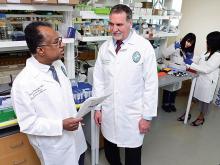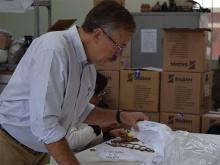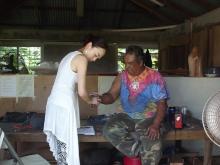Science News
Science
After 50 years of pioneering research in rural Louisiana, study pivots from heart to brain
After 50 years of pioneering research in rural Louisiana, study pivots from heart to brain
The landmark Bogalusa Heart Study reshaped the view of heart disease, revealing its childhood origins and racial health disparities. Tulane is…
NOLA, On Campus, People, Science
Neuroscience junior is called to serve others
Neuroscience junior is called to serve others
Isabel Arrarás López, a junior majoring in neuroscience, has worked to help study and promote health equity events, is part of Tulane’s Food Recovery…
Health, News Releases, Science
Walking more than five flights of stairs a day can cut risk of heart disease by 20%, study says
Walking more than five flights of stairs a day can cut risk of heart disease by 20%, study says
News Releases, Science
New study reveals a long history of violence in ancient hunter-gatherer societies
New study reveals a long history of violence in ancient hunter-gatherer societies
Health, News Releases, Research in Real Time, Science
Targeting gut microbiome could be key to improving HIV health outcomes
Targeting gut microbiome could be key to improving HIV health outcomes
News Releases, Science
Tulane University joins national consortium to educate next generation of quantum engineers
Tulane University joins national consortium to educate next generation of quantum engineers










